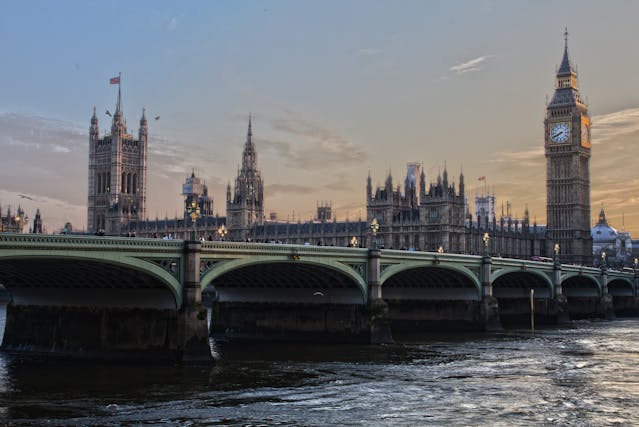Government Accountability: Investigating Corruption, Ethics Violations, and Misconduct
Government accountability is crucial for maintaining the integrity of public institutions and ensuring that officials are serving the people’s interests. When corruption, ethics violations, or misconduct occur, the very trust between citizens and their government can be severely undermined. Governments are meant to serve the public, not their own interests, and it’s vital that systems are in place to identify and address wrongdoing.
In this article, we’ll explore what government accountability means, how corruption and misconduct can be investigated, and why these processes are essential for maintaining democratic governance.

What is Government Accountability?
At its core, government accountability refers to the obligation of public officials and institutions to act responsibly and transparently in fulfilling their duties to the public. This includes being open about how decisions are made, how taxpayer money is spent, and ensuring that those in power are not abusing their positions.
Accountability is a foundational principle of democracy. Without it, public officials can act with impunity, potentially engaging in unethical practices, wasting public funds, or making decisions that benefit only a small group at the expense of the majority. Strong accountability systems act as a check on the abuse of power and foster public trust in government institutions.
Common Forms of Corruption and Misconduct
Corruption and misconduct can manifest in various forms within government institutions. Some of the most common include:
-
Bribery and Kickbacks: Officials may accept bribes in exchange for favorable decisions, contracts, or government resources. Kickbacks refer to a portion of the profits being returned to the official as a form of payment for securing contracts.
-
Conflict of Interest: When a public official uses their position to further personal interests or those of their family or friends, it can undermine the fairness of government decisions. This may include directing contracts or services to businesses they have a stake in.
-
Fraud and Embezzlement: Public funds can be misappropriated by government officials for personal gain, either through fraudulent activities or by illegally taking money that was allocated for public services.
-
Ethics Violations: These can include breaches of conduct or codes of ethics established for public officials, such as dishonesty, abuse of authority, or failing to adhere to professional standards.
-
Nepotism and Favoritism: Appointing or hiring friends, relatives, or supporters without merit undermines the fairness and integrity of the public service system.
Each of these forms of misconduct erodes public confidence in the government, weakens democratic institutions, and diverts essential resources away from those who need them most.
Investigating Government Corruption and Misconduct
Investigating government corruption or misconduct is a complex and sensitive process, but it is crucial for maintaining the rule of law. Several key mechanisms are in place to ensure transparency and accountability:
-
Independent Oversight Bodies: These agencies are tasked with monitoring the actions of public officials. Examples include government ethics commissions, public prosecutors, and ombudsman offices. They are independent from political influence and are empowered to conduct investigations into potential violations of law and ethics.
-
Whistleblower Protections: Whistleblowers play an essential role in uncovering misconduct. Government employees or contractors who observe unethical behavior are often the first to sound the alarm. Laws protecting whistleblowers from retaliation are critical for encouraging the reporting of corruption and unethical conduct.
-
Audits and Financial Reviews: Regular audits conducted by independent bodies can help identify fraud or misuse of public funds. These audits scrutinize government spending and uncover discrepancies that may point to misconduct.
-
Investigative Journalism: The media plays a critical role in government accountability. Journalists investigate, report, and expose unethical conduct or corruption in government, often acting as a watchdog. Through thorough reporting, the media holds officials accountable and alerts the public to issues that require attention.
-
Public Hearings and Trials: Investigations often lead to hearings where officials can be questioned under oath, and misconduct can be publicly aired. In more severe cases, criminal charges may be brought, and public trials offer a transparent means of holding individuals accountable.

Challenges in Holding Governments Accountable
Despite the importance of accountability, there are significant challenges in investigating and addressing corruption and misconduct. These challenges include:
-
Political Influence and Protection: In some cases, powerful figures may shield corrupt officials from investigation. Political connections and influence can slow down or derail investigations, making it difficult to achieve justice.
-
Lack of Resources: Many oversight bodies are underfunded or understaffed, limiting their ability to conduct thorough investigations. Without sufficient resources, agencies may be unable to investigate large-scale corruption or complex misconduct.
-
Public Apathy and Cynicism: In some cases, the public may grow cynical about the effectiveness of investigations, especially if they believe that corrupt officials will not face consequences. This can undermine the willingness of citizens to participate in accountability mechanisms, such as reporting misconduct.
-
Weak Legal Frameworks: In some countries, laws protecting against corruption and ensuring accountability may be weak or poorly enforced. Without strong legal protections, individuals may be reluctant to report wrongdoing, and investigations may lack the teeth to bring about real change.
Why Government Accountability Matters
The importance of government accountability cannot be overstated. When a government operates without transparency or oversight, corruption and unethical behavior can flourish, leading to:
-
Loss of Public Trust: If citizens feel that their government is corrupt or unresponsive to their needs, they may lose faith in the political system altogether, leading to apathy or even civil unrest.
-
Economic Consequences: Corruption can divert resources from essential services like education, healthcare, and infrastructure. It can also create inefficiencies that stunt economic growth and development.
-
Undermined Democratic Institutions: The erosion of trust in government undermines democracy itself. Without accountability, elected officials may become self-serving, using their position for personal gain rather than public service.
By ensuring accountability, governments demonstrate their commitment to fairness, justice, and the rule of law. Transparency in decision-making, proper checks and balances, and a firm stance against corruption are vital for healthy democracies to thrive.
Conclusion: Building a Culture of Integrity
Ensuring government accountability requires continuous effort. It involves building strong institutions, promoting transparency, and fostering a culture of integrity among public servants. Citizens, oversight bodies, and the media all play essential roles in upholding these values. As we face challenges in addressing corruption, misconduct, and ethics violations, it’s important to remember that accountability isn’t just about investigating wrongdoing; it’s about creating a system where public officials are held to high standards and are continuously working to serve the public good.












